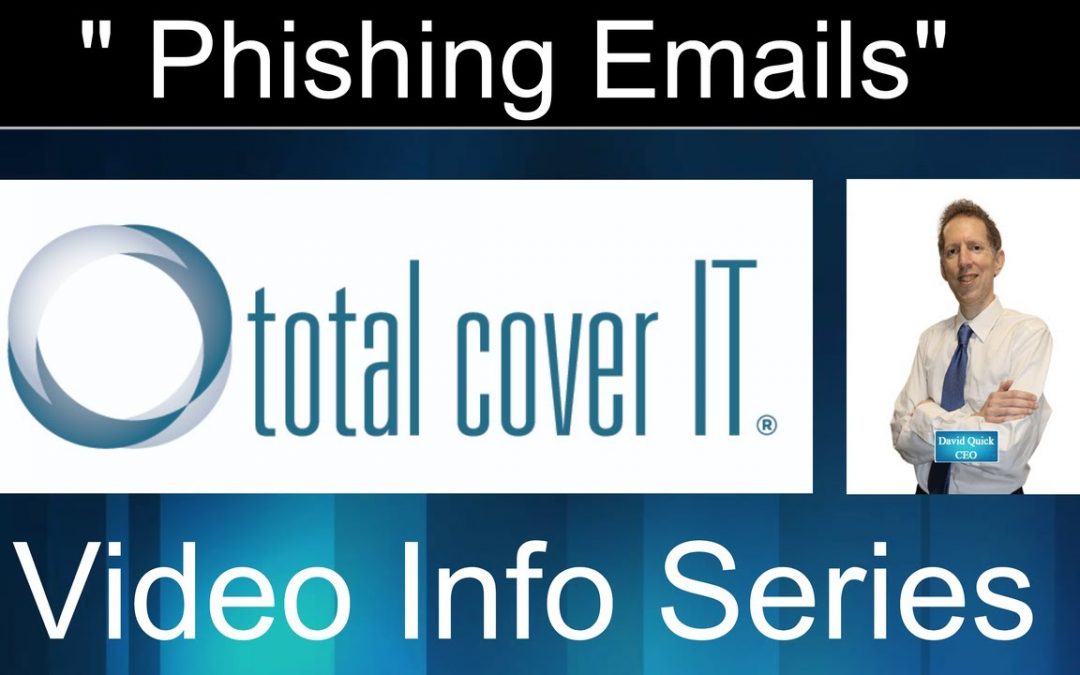Hello, this is David, Quick from Total Cover IT®
Today we are going to talk about phishing emails. Phishing emails are emails, looks that came from a legitimate source, but in fact, they are looking to have you do things that are against your best interest.
Like downloading malware to your computer or giving up your login and personal information, these are pretty dangerous because they generally look almost exactly like a legitimate email. It could be from a major company, looks like a major company but in fact, it’s from a hacker that’s looking to get into your system, get your confidential information, or other various things.
So it’s, pretty scary.
So how do we… How do we check to see if an email is legitimate or not? Well? First off, if you have a link in your email, hover your mouse over the link.
Do not click the link. Do not do that just hover your mouse over the link and that will show you what the URL is for that link. If that URL is not identifiable with the actual source, company, or organization that it purports to come from, then it is most likely a phishing email.
Another thing to do is not click on links in emails but instead go to your browser and type. The full URL of the organization that again supposedly sent you the email doesn’t you don’t type in that link.
You type you find out the link on your own or you have it on file or you have a bookmark for it. You go to that so that will go a long way towards protecting you from these bad links in the case of attachments.
If somebody sent you or supposedly sent you an attachment – and you did not expect it call that person but do not use the phone number that may be referenced in the email use, one that’s on file that you have on file, and call That person directly and find out if they did in fact send that email to you also a good telltale sign that an email is a phishing email.
Is you may see bad, spelling or grabber, so those things you can look out for also uh. In the case of identifying potential phishing emails thing to keep in mind is that any legitimate company that you do business with should have your information.
So if you get an email asking you to confirm your login information and your account information like from your bank, they have that information already, so they’re, not gonna they’re, not gonna contact you to verify it.
So most likely those types of emails are phishing emails and also if it’s too good to be true, it probably is that’s. The old saying goes, so I hope that these tips are helpful to you today. You have any questions feel free to reach out to me.
I’m David, Quick from Total Cover IT® where our eye is on your Tee, thanks for watching.




